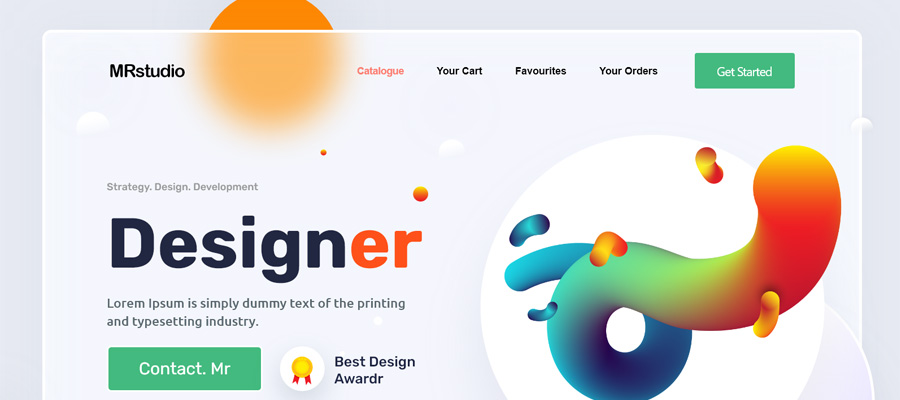Nowadays, almost anyone can benefit from building a website. They can be used to promote a company, to start a blog, to connect with fellow hobbyists across the world or even to create a digital portfolio to be used when approaching prospective employers.

There are many ways to build a website from hiring a professional to doing it yourself through the likes of WordPress without any need for coding. In all cases, it’s important that a website looks and feels professional, otherwise people won’t trust its contents and won’t return to it. Here are just a few ways that you can craft a website with a professional touch.
Choosing a domain name
Your first step is to buy a domain name. This is the address of your website and care should be taken in selecting an appropriate name. The domain name should ideally contain no more than three words in it (more than that and it’s easy to forget). You should also try to avoid replacing letters with numbers – somebody hearing your web address in conversation should be able to look it up easily.
It’s worth researching your chosen domain name first to see what’s already out there. There are a lot of websites out there and finding one that’s available and suited to your needs can be difficult. If your ideal domain name already exists, consider putting words like ‘site’ and ‘company’ at the end. You can buy a domain name from registrar sites such as Go Daddy. Domain names expire so be wary of this and keep them renewed to avoid losing them.
Website builders vs Designing from scratch
There are a number of website builders or content management systems out there such as Wordpress and Joomla that can allow you to build your own website for free without any coding knowledge. They use drag and drop options that make website building fast and easy and are a sensible and affordable option for small businesses, bloggers and hobbyists. They do however have limited options, leading many to rely on the same templates.
Designing from scratch gives you the freedom to code a website exactly to your liking. For big companies and those wanting that extra touch of professionalism, it can often be a better route to take. However, it does require you to have coding knowledge. You can hire a web designer to do the work for you, but this can cost a lot of money. It also takes longer – those with time constraints might be better using a website builder.
You can use the likes of Wordpress without buying a domain name. Just take into account that the ‘/wordpress’ part of the domain name may damage professionalism.
Staying simple but effective
Long gone are the days of loading websites with gifs and crazy fonts. Today’s best websites are simple and effective. Consider this when building your website.
The homepage should state straight off the bat what your website is about. Keep it clean and simple and make sure that any image in the background doesn’t render text unreadable. Easy navigation is important so make clear headers to other pages such as contact details and other categories. You can insert a search bar (there are plug-ins for this that Wordpress users can adopt). Sites such as Awwwards are great for design inspiration.
Feel free to display adverts on your website, but try not overload each page with ads and risk pages loading slowly and putting readers off. If you’re creating a blog, don’t put up a paywall or force people to subscribe first – unless you’re already highly established, no-one will care enough to pay or subscribe.
Considering a mail server
Not everyone needs a mail server, but it can often be a slick way of handling your website’s email – both incoming and outgoing. You can automate reply messages or get people to contact you via a special submission form. The likes of Centos 7 web server configuration come with good anti-spam features – useful if you’re a business that’s often getting junk mail from advertisers. Be aware that mail servers cost money and take time to set up. If you’re a small startup or blogger you may not need a mail server straight away.
Keeping your website secure
Nobody wants to get their website hacked – having a level of security in place is often worthwhile. Content management systems such as Wordpress are generally very secure, so long as you keep on top of any updates. With your own custom website coded from scratch you may need to ensure that various security features are scripted in.
Make sure that your log-in password to your website is strong and consider adding features such as Captcha to further strengthen it. If you have multiple contributors to your website who all upload content, this can be a big risk, so make sure that you trust all of these contributors. Some blog owners may prefer to upload content from other contributors themselves and act as an editor - although this can be time-consuming it ensures you know what’s going on your website.
Marketing your website
Every good website needs to be marketed so that people find it. There are now online companies that can help with this such as SEO companies that aim to boost your rankings on search engines such as Google. Alternatively, there are many ways that you can market your website yourself. Setting up social media pages can allow you to connect with new people and promote your website. If you’re a business, you may also be able to get business cards and personal branding done that further promotes your website address. Keep content new and fresh and people will keep visiting it. Many business owners are now blogging simply to keep activity on their website. Don’t be afraid to freshen up your website’s layout every so often and let people know of any changes on social media.





















